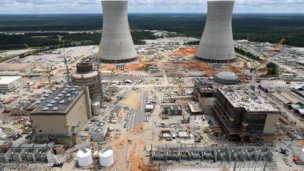The nuclear industry can breathe a little easier knowing that trafficking of nuclear and radioactive material remained low in 2023, according to the annual fact sheet published Monday by the Incident and Trafficking Database (ITDB), a branch of the UN nuclear energy watchdog agency.
The details: There were a handful of potentially dangerous attempts to take radioactive and nuclear materials out of regulatory oversight, but they were few and far between.
- Only six incidents in 2023 were definitely or likely related to “trafficking or malicious use,” known as Group I incidents. This is up slightly from 2022 but down from 2021.
- 168 incidents were reported last year by 31 member states.
Since 1993, almost 86% of incidents and attempts in Group I have been labeled as trafficking with profit as the motive. The remaining incidents and attempts were classified as scams/frauds or malicious use.
Many attempts to sell nuclear or other radioactive material are detected through sting operations. The number of successful transactions is unknown, creating challenges for the agency in accurately assessing the size of the illicit nuclear market.
Tracking thefts: Since 1993, when data collection began, 145 countries have reported a total of 4,243 incidents to the International Atomic Energy Agency (IAEA).
- Among these, 350 were potentially or directly connected to criminal activity like illicit holding, sale or smuggling.
- More than half of these thefts occurred during transportation.
The ITDB also tracks incidents of nuclear and other radioactive material out of regulatory control where intent cannot be determined (Group II) and incidents that are not, or likely not, connected with trafficking or malicious use (Group III).
Be warned: Even though the frequency of trafficking remains low, industry can’t let its guard down, according to the IAEA.
“The recurrence of incidents confirms the need for vigilance and continuous improvement of the regulatory oversight to control, secure, and properly dispose of radioactive material,” Elena Buglova, director of the IAEA’s Division of Nuclear Security, said in a release.




